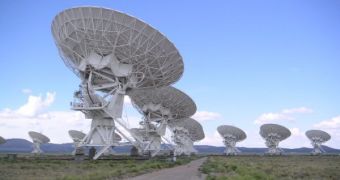Progresses made in astronomy since the beginning of the Space Age are bound to change our world forever, astronomers say. But scouting the skies and sending missions to deep space is a highly-challenging task, and one that can easily be stopped by various interests. Because 2009 is UNESCO's International Year of Astronomy (IYA), a group of astronomers from the UK, the US, Europe and Asia have come together to write in the latest issue of the journal Physics World about the problems and potential solutions that lie ahead in our race to explore space.
There are many things that astronomy needs to figure out over the next few years and decades. The theoretical ones include learning the secrets of dark matter and dark energy, finding the earliest stars in the Universe, learning more about the Big Bang, and, obviously, searching for extraterrestrial life on the dozens of exoplanets that will soon be discovered. On a political level, countries of the world need to better cooperate in the field of space exploration, as well as to put together resources for building more complex facilities, which none of them alone can afford.
“Technological developments now make it possible to observe planets orbiting other stars, peer deeper than ever into the universe, use particles and gravitational waves to study celestial sources, and to carry out in situ exploration of objects in our solar system. This promises tremendous progress towards answering key astronomical questions,” the director of the European Southern Observatory (ESO), Tim de Zeeuw, writes.
“The greatest challenge for astronomy is international collaboration, because building big and expensive telescopes can no longer be accomplished by a single country alone. It is my hope that IYA2009 will enable astronomers from around the world to create a new tradition of cooperation in astronomy,” Korea Astronomy and Space Science Institute president Seok Jae Park adds.
“It is [the] sense of discovery and awe that astronomers wish to share with our fellow citizens all over the world. We thus hope to stimulate a long-term increase in student enrollment in science and technology, and an appreciation for lifelong learning,” the President of the International Astronomical Union, Catherine Cesarsky, says.

 14 DAY TRIAL //
14 DAY TRIAL //